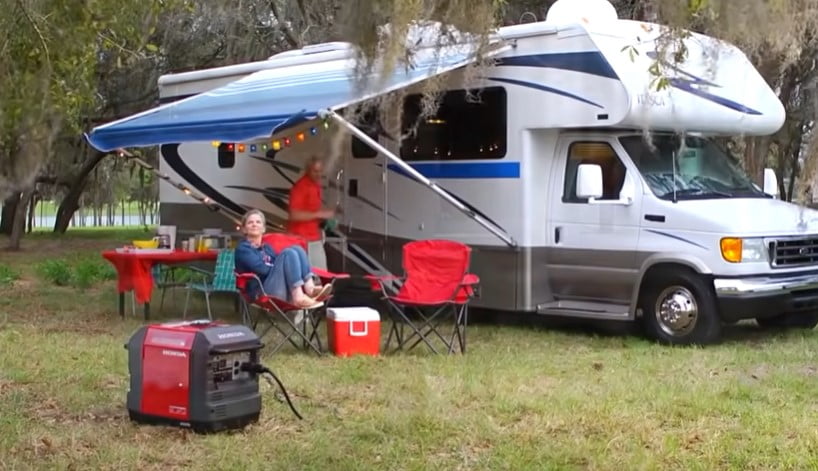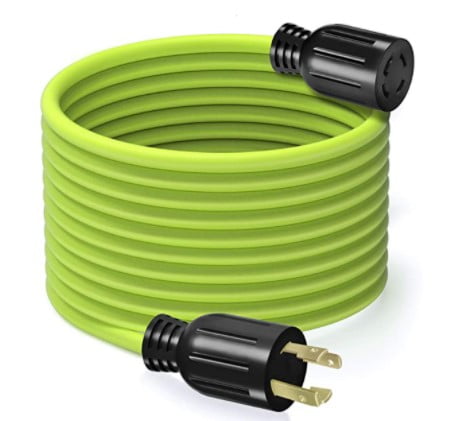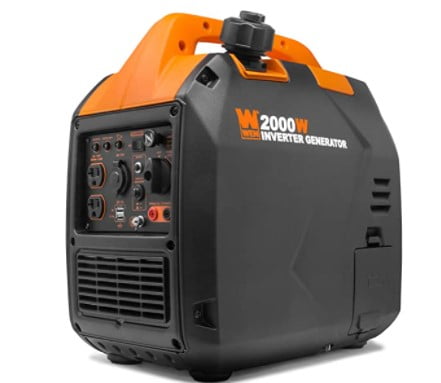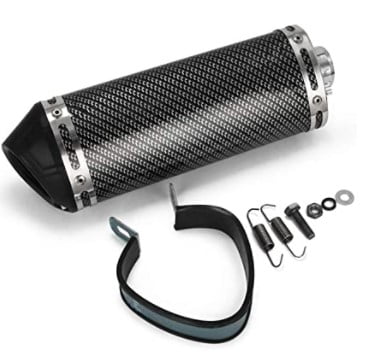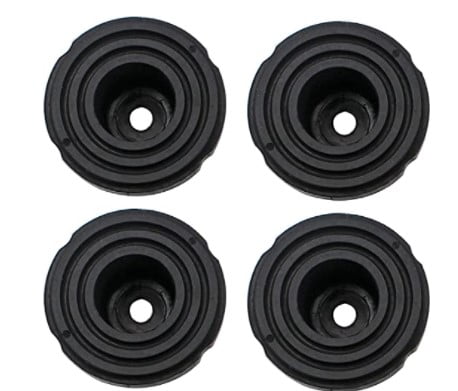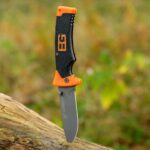One of the worst things that can happen when camping is having a noisy generator as you attempt to enjoy the wild for a few days. That’s when it becomes pretty vital to know how to make a generator quiet for camping, which is exactly what we’ll be covering in this guide.
When planning a pleasant time with family and friends outdoors, there are some useful skills you may want to learn to be as prepared as possible and make sure you have a memorable camping time. One of these skills is learning how to soundproof a generator for camping. If you are currently thinking about going camping, knowing how to soundproof a generator could be the difference between having a pleasant camping experience and one where you can’t wait for it to be over.
After all, camping doesn’t mean you have to sacrifice comfort entirely; instead, you need to have some basic knowledge and proper gear to make sure you have everything you need to feel as comfortable as possible. Whether you are an experienced camper or a first-timer, doing some research is always the smartest thing to do. Keep reading and learn everything you need to know about how to make a generator quiet for camping.
How to Make a Generator Quiet for Camping FAQs
Why are generators so noisy?
Power needs to come from somewhere when you’re camping. A generator produces energy by running diesel fuel through an internal combustion engine. The combustion process, which means creating power via explosions, makes a lot of noise.
While the engine itself may have a sound barrier, the exhaust of diesel generators nonetheless has a high noise output. After all, the fumes created from explosions need to escape somewhere.
Can you soundproof a generator?
Generators are engines, loud, rattling, mean machines designed to do one job well. Adding a mass-loaded vinyl material will do wonders to block the sound from your generator and keep your area quiet.
Can I put a quieter muffler on my generator?
Yes, you can put a silencer/ automotive muffler on your generator to muffle the noise. Doing this alone can make the difference from 12 to 18 decibels. Please make sure you have good knowledge of installing them or might end up blocking the exhaust flow.
Understanding how a generator works and the cause of their noisy nature
When looking at generator noise sources, the engine and exhaust are the most important.
Engine
The generator’s engine is its source of mechanical energy. It uses fuel (e.g., gasoline) to power pistons, which connect to the alternator.
As the generator wastes energy, the generator’s impact sound is kinetic (vibrations). These vibrations pass through the generator into surrounding structures, through its feet into the floor.
Exhaust
The generator’s exhaust is mainly used to emit waste gas, which also emits sound. These sounds come from the gas inside the engine under high pressure. It can sound like popping or sputtering when it escapes through the exhaust.
While the engine creates impact sound, the generator’s exhaust produces airborne sound.
Generator’s Decibels
The overall decibel level of a generator depends on numerous factors, but you can expect it to be between 60dB and 100dB. Backup (fixed) generators are typically quieter than portable generators, mainly because they’re heavier and larger, which equals fewer noise emissions.
Quality
Along with size and type, you must also consider build quality. While high-end generators will still produce noise, low-quality generators will almost always be louder. It’s because the parts are poorer, meaning they can vibrate more easily.
Power Output
Finally, it would help to consider the generator’s power output. A 50kW generator might produce around 85dB, while a 1,500kW generator can be as loud as 105dB.
How to Make a Generator Quiet for Camping
Move Your Generator Farther Away
An important thing to note is that the manufacturer lists the decibel levels of their products. These sound vibrations were measured at a distance of around 20 feet. So an easy way to reduce the noise of a generator is to move it beyond that threshold until the noise is tolerable from your RV or campsite.
Also, you might want to invest in a generator extension cable, so you can continue using it.
250-Volt Generator Extension Cord
Ultra-portable 40 feet 30amp generator power cords to provide electrical power for your house, appliances, emergency backup generators, or power outages. UL certification seal and approval for safety.
Our GearIT 30amp ten gauges electric generator cord is designed for extreme weather conditions.
UL certified heavy-duty generator electric cord designed to withstand elements like wind, rain, snow, soil, and rocks for long-lasting durability that keeps you powered through hurricane season.
Features:
- 250 Volts
- 30 Amps
- Portable
- Durable
Buy the Right Generator for Your Power Needs
There are two types of generators, and one is considerably quieter. It is no surprise that the most silent generator emits lower wattage than its noisier cousin.
The more powerful generator is the traditional kind, which creates much noise. They also run on fuel, and here are the pros and cons for each kind to consider.
While shopping, consider first if you need to power heavy-duty things. This includes refrigerators, constructions tools, a microwave or air conditioning unit. If you don’t need a higher power output for those things, you don’t need to buy a loud generator.
WEN Super Quiet Portable Inverter Generator
The 79cc 4-stroke OHV engine operates at an extremely quiet 51 decibels at quarter load, comparable to the sound of a normal conversation, providing non-invasive power wherever it is needed.
The 39-pound body and compact form make it easy to move the generator from the car to your campsite.
The eco-mode feature allows the motor to automatically adjust its fuel consumption, saving you money by preventing unnecessary gasoline usage.
Features:
- 2000-Watt
- Ultra Lightweight
- Fuel Shutoff Feature
Position the Generator Correctly
Since the generator muffler emits the largest amount of noise, face the exhaust pipes away from your campsite and others.
Also, don’t place the generator on hard surfaces that amplify or shake. Placing rubber feet or a rubber mat below the generator can help immensely if you can’t avoid that. Soft surfaces work to dampen the noise.
Sound Deflectors are Your Friends
This involves deflecting sound into the soft ground below it rather than outward. All you need are four pieces of plywood that you can prop against the generator on all four sides.
Replace the Muffler
A muffler works by reducing exhaust pressure. Inside the muffler, there are features such as holes and bent tubes.
The first thing you can do is change the generator’s muffler to the vertical position. This essentially makes the direction of the noise face upward. Even more compelling is changing out the generator’s exhaust pipes. The generator’s noise level could go down as much as 10 to 12 decibels by making the exhaust system bigger!
Swapping out your existing muffler for a silencer can significantly impact generator noise. Depending on the muffler, it can reduce noise emissions by up to 15dB.
Universal 1.5″ Inlet Exhaust Muffler
Removable DB Killer/Silencer, the unique design makes a deep, resonant sound. This universal muffler can be used for dirt bikes, street bikes, scooters, ATV, quad, and any other bike with a pipe diameter of 38 mm.
Made of aluminum and plastic, its size is in length is 320mm, with a connection diameter: Of 38mm(1.5″).
Features:
- Aluminum, Plastic
- Removable DB Killer/Silencer
- 1.5 Inches
Use Rubber Feet
To combat impact noise, sit your portable generator on rubber feet. They help absorb vibrations, meaning there’s less distracting noise passing into your camping site. Foam mats also work for the same reason as rubber feet.
Huthbrother Lower Rubber Foot Pads
High-quality rubber, trustable performance. Easily copes with various jobs like cutting, hot pressing, gluing, and so on.
This product not only features great shockproof, cushioning, and sound insulation properties but delivers great tensile strength, resilience, and toughness, making it highly resistant to extreme environments like cold, heat, and sun exposure.
It is compatible with Honda EU2000i & EB2000i Model Generators, and This will fit all EU2000, EB2000, EU2200, and EB2200 generators for Honda Generator Rubber Feet.
Features:
- Shockproof & Sound Insulation
- Premium Quality

